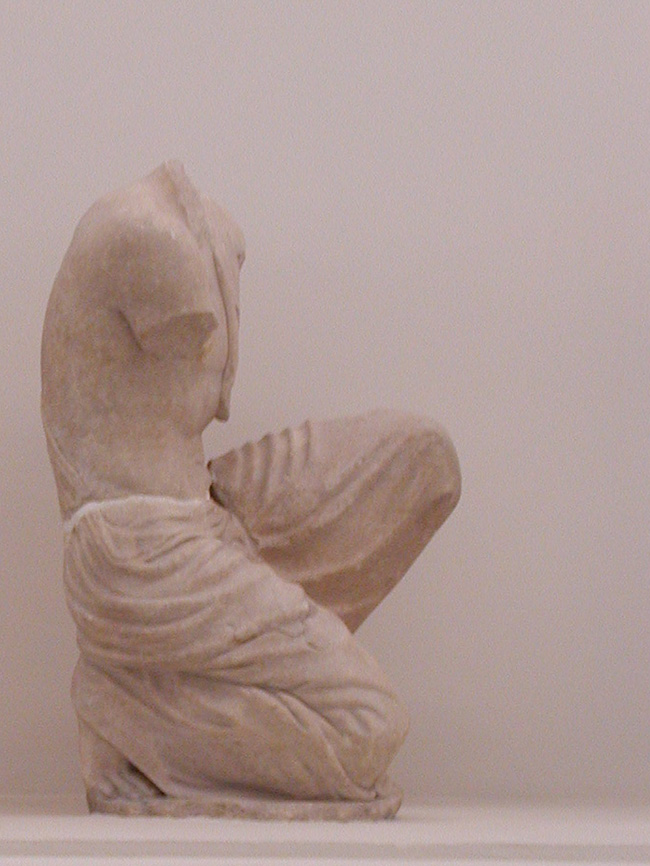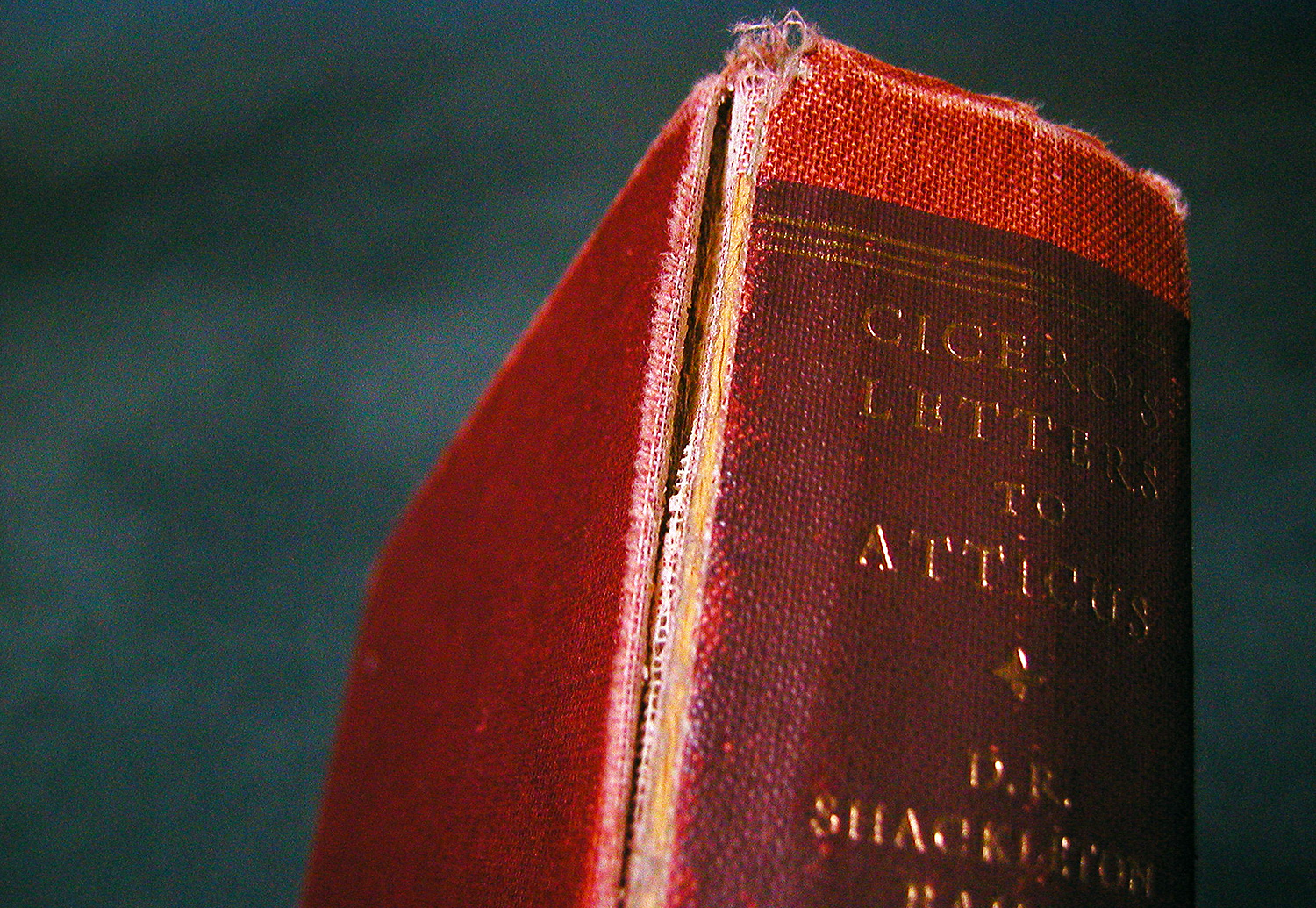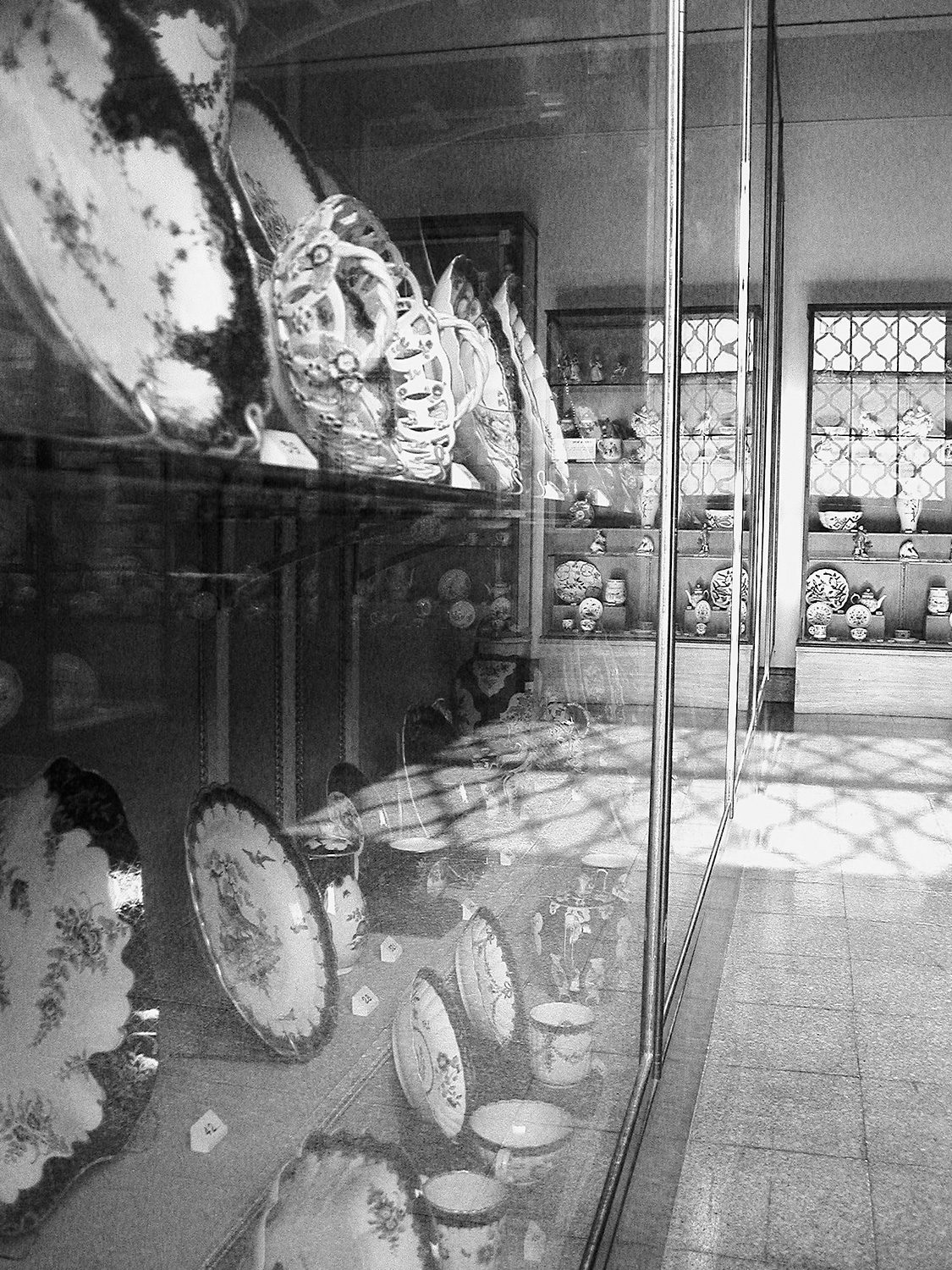February 2003
An Observation (3)
1 February 2003, around 9.16.
Be suspicious of anyone who claims to be an intellectual. Especially if they say anything to the effect of: ‘I like to think of myself as something of an intellectual…’1
Be suspicious of anyone who makes you feel stupid. You probably are stupid, but that’s not the point. The sort of person who makes you feel stupid is afraid that you might—on some small subject—know more than they do, while the sort of person who can actually teach you something will point you towards the things you need to know by encouraging your enthusiasm to learn them.†
This can be communicated through bearing, as well as words—be wary!
† Such people are often good at making you feel as though you are more intelligent than they are, though they will occasionally let the mask slip, just a bit, so they retain their credibility; after all, no one really wants to be taught by a complete idiot.
[↩]
Citation (6)
2 February 2003, around 9.17.
From the Alexiad of Anna Comnena:
…he gave them no pretext for war and did not use compulsion on them; nevertheless, if they did cause trouble, he checked them. After all, it is the mark of a bad general, when all is peaceful, purposely to provoke his neighbours to war—for peace is the end of all wars. Invariably to prefer war instead of peace, always to disregard the good end, is typical of foolish commanders and foolish political leaders, the mark of men who work for the destruction of their own state (2003.11, 12.v).
gallery
3 February 2003, around 9.17.

Olympia.
Oddities
5 February 2003, around 9.18.
Sometimes I cannot tell if I am invisible because people think I do not wish to be seen, or because people do not wish to see me. Most times both seem true.
The glacial drifting of the swans upon the river.
Coasting loose-limbed on an ancient bike, almost Cassius-faced in a green wool coat.
Birds of ill omen—where a crow flew to the very peak of the roof, cawed twice, and departed.
To send light piercing through the shadows of ignorance; and yet we find the shades ever nearer encroaching. For in a world with no boundaries, there can be no knowledge which is not incomplete.
How easy it is, then, to remain restless.
Republican letters
6 February 2003, around 9.20.

Ciceronis Epistulae ad Atticum,
edidit D.R. Shackleton Bailey,
Cambridge University Press.
Balance of Power
9 February 2003, around 9.22.
From The Roman Revolution (1939):
The official version of the cause of the War of Actium is quite simple, consistent and suspect—a just war, fought in defence of freedom and peace against a foreign enemy: a degenerate Roman was striving to subvert the liberties of the Roman People, to subjugate Italy and the West under the rule of an oriental queen. An expedient and salutary belief. Octavianus was in reality the aggressor, his war was preceded by a coup d’état: Antonius had the consuls and the constitution on his side. It was therefore necessary to demonstrate that Antonius was ‘morally?’ in the wrong and ‘morally’ the aggressor. The situation and the phraseology recur in the history of war and politics whenever there is a public opinion worth persuading or deceiving (270f.).
A view (5)
10 February 2003, around 9.23.

Gutter, pigeon.
Epicurus, ratae sententiae xxvii
11 February 2003, around 9.24.
Ὧν ἡ σοφία παρασκευάζεται εἰς τὴν τοῦ ὅλου βίου μακαριότητα πολὺ μέγιστόν ἐστιν ἡ τῆς φιλίας κτῆσις.
Of the things wisdom furnishes for bliss1 throughout life, by far the greatest is the possession of friendship.
- The ancient Greek adjective makarios, which appears as a superlative in this text, is difficult to translate into English. It is a state of divine happiness or contentment, used in Homer to describe the gods (whose satisfaction stands in sharp contrast to the sufferings of men). The common translation ‘blessedness’ has a rather sanctimonious flavor, and while there is no doubt that the original word is connected with the sacred, it seems best—especially in an Epicurean text—to eschew the overtly religious. Perhaps ‘blitheness’ would be better, though I think it is too seldom used at present to fit in any but the most archaizing of translations. ‘Joy,’ meanwhile, is in danger of sounding insipid. (Admittedly, one would not be far wrong in accusing ‘bliss’ of mawkishness as well, but I defy somebody to procure a better word.) [↩]
Absurdity
12 February 2003, around 9.27.
‘Without a doubt, this, this is the place to be!’ she cried, throwing wide her arms to embrace the magnanimous hillside replete with trees and grasses and charming little shrubs.
Alphonse, somewhat bewildered, looked at her and cleared his throat. ‘Yes, well, if you say so, my dear. But I don’t think young Herbert would like it much at a girls’ school.’
Herbert, who ’til now had hidden behind a lamppost, emerged and nodded vigorously, rumpling his white shirt and merely gaining a headache for his pains.
His mother had already turned towards the headmistress with ardent expectation.
Historicity
13 February 2003, around 9.28.
History should have a sense of proportion—a human touch, if you please. From a biography of Petrarch (2003.8, p. 51):
In Verona, and well before the middle of June, he made his greatest find. He discovered in the library of the cathedral a volume containing the sixteen Books of Cicero’s collection of his letters to Atticus, as well as the minor collections of Cicero’s letters to his brother Quintus and to Brutus. This volume, if known at all, had been known only to men who had not realized its importance.
Greatly excited, Petrarch started at once to make a copy of these collections, for no local copyist had the competence necessary for this particular piece of work. This task, undertaken at a time when his arm was still troubling him,1 must have kept him busy for several weeks, even if he worked at it quite steadily. The finished volume was so huge and unwieldy that he could not keep it in a book-chest, but had to stand it on the floor.
This discovery was to have extraordinary results. It was to enrich the classical heritage of all later generations; it was to lead Petrarch to write to Cicero and to other classical authors; and it was to give him the idea of making a collection or collections of his own letters. It was also to be responsible for a serious injury to his left leg.2
- Petrarch had fallen from a horse after being chased by brigands; this accident injured his arm—though he was not, however, captured by the brigands. [↩]
- Emphasis mine. [↩]
Improbable places (3)
14 February 2003, around 9.29.

The Room of Porcelain
Ashmolean Museum, 11:42 a.m.
A view (6)
17 February 2003, around 9.30.

Morning.
Part the First
21 February 2003, around 8.23.
Breakfast that morning consisted of lumpy porridge, dry toast and watery tea. They sat around a large rough table, taking special care not to spill gruel onto the linens. Except for the scrape and click of silverware, they made very little noise. Young Herbert cleared his throat. Everyone stopped eating, their spoons hovering in the air, their mouths gaping and anxious. He looked up and around and, blinking rapidly, continued eating his porridge. A general suspiration, not untainted with relief, settled around the table; young Herbert’s questions were invariably awkward and it took a great deal of art to fabricate a response both technically correct and yet not unsuitable for conversation at the table.
Manipulus Vocabulorum
22 February 2003, around 8.08.
From an English rhyming dictionary, with Latin translations, compiled by Peter Levins in 1570 (EETS #27, 1867):
In arke
An Arke, archa, æ.
ye Barke of a trée, cortex, icis, hic.
Carke, care, cura, cogitatio.
A Clarke, clericus, i.
A Larke, alauda, æ, galarita, æ.
A Marke, signum, scopus, i.
A Parke, damarium, vivarium.
A Sparke, scintilla, æ, mica.
Warke, ache, dolor, doloris, hic.
Darke, obscurus, caliginosus.
to Barke, latrare.
to Barke a trée, decorticare.
to Carke, care, cogitare, accurare.
to Marke, signare, notare.
to Marke, héede, auscultare.
to Harke, audire, auscultare.
Starke, stiffe, robustus, a.
A Mónarke, monarcha, æ, hic.
A Pátriarke, partiarcha, æ, hic.
Writ in water
23 February 2003, around 8.00.

Goethe, ‘Am Flusse’ –
Ihr wart ins Wasser eingeschrieben;
So fließt denn auch mit ihm davon.
You were engraved upon the water;
and flow, too, with the water away.
Keats’s epitaph, in the Protestant cemetery, at Rome:1
Here lies one whose name was writ in water.

Keats died 23 February 1821. Goethe’s son, Julius, who died in 1830, is also buried in the Protestant cemetery. Cf. Antal Szerb, Journey by Moonlight (1937):
[↩]… for at that moment he was walking in the little Protestant cemetery behind the pyramid of Cestius, beside the city wall. Here lay his fellows, dead men from the North, drawn here by nameless nostalgias, and here overtaken by death. This fine cemetery, with its shady wall, had always lured souls from the North with the illusion that here oblivion would be sweeter. At the end of one of Goethe’s Roman elegies there stands, as a memento: Die Pyramide vorbei, leise zum Orcus hinab. ‘From the tomb of Cestius, the way leads gently down to Hell.’ Shelley, in a wonderful letter, wrote that he would like to lie here in death, and so he does, or at least his heart is there, beneath the inscription: Cor Cordium
Mihály was on the point of leaving when he noticed a small cluster of tombs standing apart in one corner of the cemetery. He went over and perused the inscriptions on the plain Empire-stones. One of them read simply, in English: ‘Here lies one whose name is writ in water’. On the second a longer text declared that there lay Severn, the painter, the best friend and faithful nurse on his death-bed of John Keats, the great English poet, who had insisted that his name should not be inscribed on the neighbouring stone, under which he lay.
Mihály’s eyes filled with tears. So here lay Keats, the greatest poet since the world began … though such emotion was somewhat irrational, given that the body had been lying there for a very long time, and the spirit was preserved by his verses more faithfully than by any grave-pit. But so wonderful, so truly English, was the manner of this gentle compromise, this innocent sophistry, that perfectly respected his last wishes but nonetheless announced without ambiguity that it was indeed Keats who lay beneath the stone. (139f.)
Impossible Epistles
24 February 2003, around 7.59.
The letters arrived two weeks apart, sent by two different people; each requires a response, and yet I cannot think how to reply to them. The first letter was a love story; a year ago she’d met a young man, parted as friends, wrote to each other, talked on the telephone, fell in love at a distance. This relationship, now, is the focus of her new life, the new life she had begun in the months since she last wrote to me. The second was a death story; an elderly relative of a young married friend had died a week after suffering a heart-attack—the letter describes the site of the grave, beneath an opening in the dark pine trees, beneath blue hills, under the uneven Oregon sky.
And I have no idea what to write, for I know nothing of these things, am innocent and ignorant, bland and complacent. What can I say, save only:
You, my friends, are living, while I sit safe with my books. Love, grieve, do what you will, do what you must. I would worry about you, rejoice with you, suffer vainly in my sympathy, but such actions would be but irrelevant apings of the things you truly feel, and pleased though I am to act a part, I cannot do so with you, not in serious things. Rather, let me tell you of this amusing thing or that, an overheard conversation refracting ’round your stubborn facts; let me remain as I am, here, going from room to library and back again, stopping out for coffee and chasing away the pigeons.
And waiting for your letters….
Improbable places (4)
25 February 2003, around 8.09.

East Oxford.
Influential Books
26 February 2003, around 7.57.
Books that made an impression on me in some way or another, listed according to the age at which I read them. I could tell you what edition I read (or possessed), who recommended them (or where I found them), where I read them, what the weather was like, how and what they changed for me, and perhaps later I will do any or all of these things. For now, though, here is the list:
- Age 9 — Grimm’s Fairy Tales, unexpurgated
- Age 11 — John Steinbeck, East of Eden
- Age 12 — Homer, Odyssey and Iliad
- Age 13 — Voltaire, Candide
- Age 14 — Ambrose Bierce, The Devil’s Dictionary
- Age 15 — W.W. Horn, The Plan of St. Gall
- Age 16 — Georges Perec, A Void*; Emerson’s Essays; Byron’s Hours of Idleness
- Age 17 — Charlotte Brontë, Jane Eyre; Jane Austen, Mansfield Park
- Age 18 — Sigmund Freud, Civilization and Its Discontents; Thomas Mann, Dr Faustus; Oswald Spengler, Decline of the West*; Dostoevsky, Crime and Punishment
- Age 19 — Dickens, Bleak House; Turgenev, The Diary of a Superfluous Man
- Age 20 — Thomas Mann, The Magic Mountain; Herodotus, Histories; Virginia Woolf, The Waves; Henry James, Roderick Hudson; E.M. Forster, The Longest Journey
- Age 21 — Henry James, The Ambassadors; Anne Brontë, Agnes Grey
- Age 22 — Don DeLillo, Underworld
Incomplete Associations (Latin)
27 February 2003, around 9.32.
- The prose of Cicero is a ripened plum, the dusky purple austerity concealing a rich and summery sweetness.
- The lines of Ovid are a silver ring; of Horace, a poet’s faded crown, gone gray and dusty down the centuries. Yet Vergil’s lines are as a shepherd’s staff, for cudgeling foes or correcting friends.
- The works of Sallust are harsh and unappealing as blood-spattered gravel on a winter’s day, and yet, like Plato’s Leontius,1 we cannot help but look again.
- The satires of Juvenal are a crowded block, all ochre colored, with kicked dogs yowling and the squall of children underfoot, the smell of refuse rising from the gutters—or better yet, a drought-bare vine, strangled and withering.
- Seneca the younger’s multifarious, rising now desperate green in letters, penning then the bilious motley Apocolocyntosis, then dashing burgundy through Medea, before settling white and grey in sanctimonious sententiae, the colors swirling as down a drain in some unknown painter’s studio.
It’s Academic
28 February 2003, around 9.33.

And, unrelated:
‘They’re hopelessly vulgar,’ said Mrs. Costello. ‘Whether or no being hopelessly vulgar is being ‘bad’ is a question for the metaphysicians. They’re bad enough to blush for, at any rate; and for this short life that’s quite enough.’
